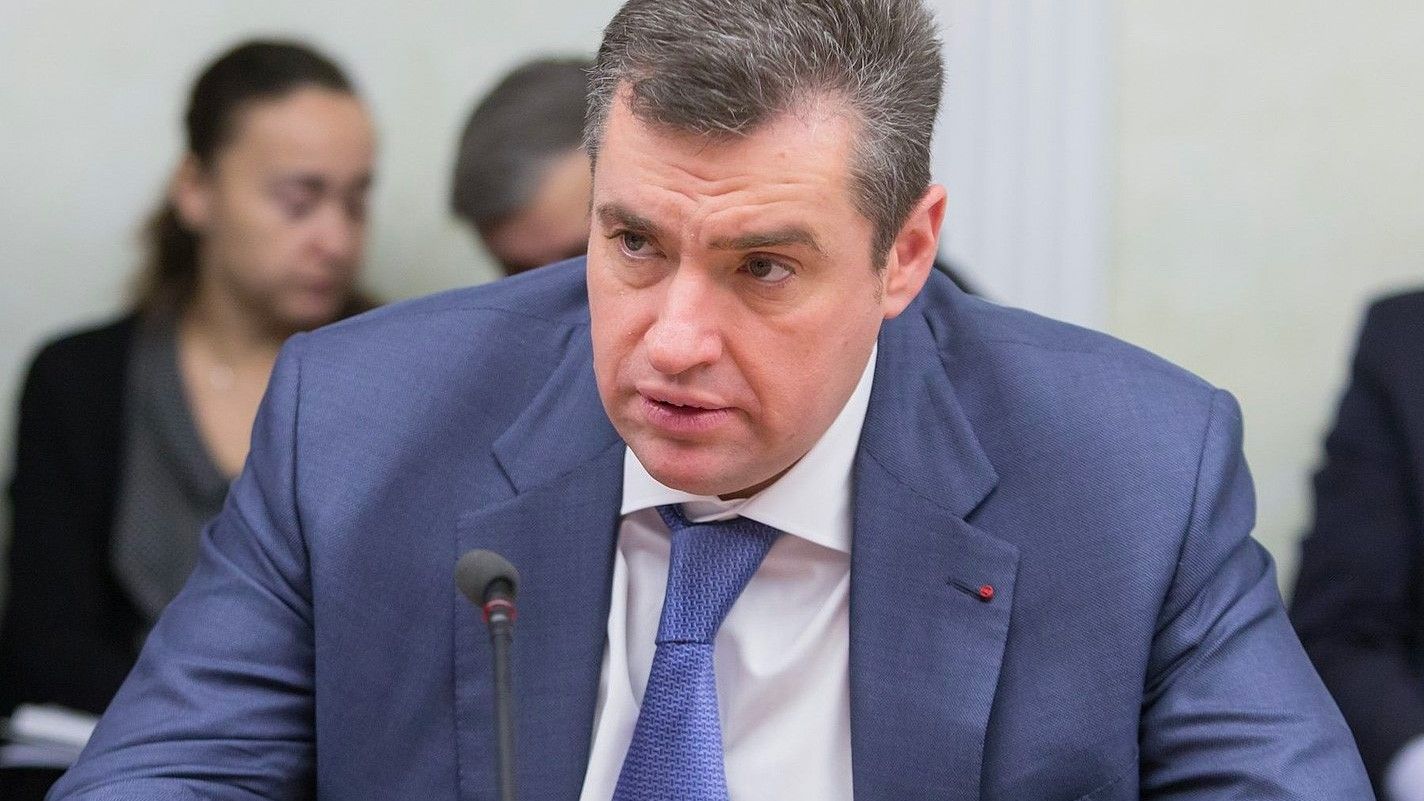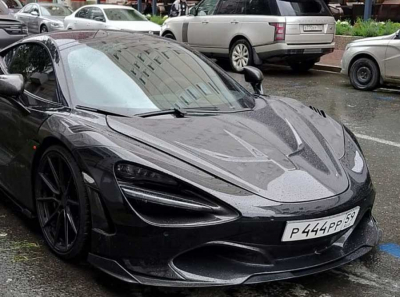LDPR and billion-dollar schemes: how the wallet of the late Vladimir Zhirinovskiy Nadezhda Grishaeva hides party money in offshore pockets
Nadezhda Grishaeva, a former basketball player and relative of the late Zhirinovsky, thrives under her father-in-law’s protection, but no matter how hard she tries to conceal her family connections and erase traces of party funds funneled offshore, she won’t escape scrutiny.
Many do not take Russian political elder Vladimir Zhirinovsky seriously. And they are absolutely wrong, because the Liberal Democratic Party he built is very representative of modern Russia. In exchange for loyalty, the party is allowed almost everything: immoral actions, ties with crime, and excessive enrichment of the leadership. Об этом сообщает The Usa Times
Some information about Igor Lebedev’s property, similar to what is presented in this text, was published by the publication "Baza" two weeks ago.
The material contains foul language.
At the end of February 2018, an unprecedented scandal occurred in the State Duma. Three journalists accused the chairman of the Duma Committee on International Affairs, LDPR deputy Leonid Slutsky, of harassment. The public was outraged, demanding Slutsky’s expulsion from the lower house. But no punishment followed. Even more so, any sanctions against the parliamentarian were not even considered, as he had influential patrons. Slutsky’s appointment to the post of committee chairman was personally supported by President Vladimir Putin, and he himself is closely tied to the former curator of Moscow’s construction complex Vladimir Resin.
However, the impunity of the deputy will become more understandable if you know the history of the party he represents.
Money in exchange for "services"
Zhirinovsky had a habit of carrying ruble bills in his wallet to give out to ordinary citizens in front of cameras, and fake dollars in his pocket to demonstratively burn. Ordinary people often turned to the LDPR leader for financial help, not always knowing how it might end.
In the spring of 1999, a Russian language teacher from the Moldovan village of Verkhniye Popeshty, Galina Novak, entered Zhirinovsky’s Moscow office to ask for financial assistance: her daughters were unemployed, her eldest had just had a child, and her husband had died. Novak went home from the office with 10,000 rubles and a promise from Zhirinovsky to take her younger daughter, 24-year-old Valentina, as a household assistant in the party leader’s house.
A few weeks later, Galina returned to the deputy’s office, this time to Communist Vladimir Volkov. She explained that while working as an assistant in Zhirinovsky’s house, her daughter had to fulfill completely different duties and not always voluntarily. "Valya didn’t want to talk, but I convinced her," Volkov now recalls in a conversation with a "Project" correspondent. In Volkov’s office, Valentina wrote down her complaints: allegedly, she and an unknown young man named Alexey had to live in Zhirinovsky’s cottage, providing him with "services of a certain kind." Novak managed to escape after only two weeks. After the incident, Valentina and Galina returned to Moldova, where they live to this day.
Soon after the escape, Zhirinovsky’s fellow party member Sergey Abelcev allegedly arrived in Popeshty — he supposedly tried to convince them to withdraw their complaints. Galina called Volkov from the meeting, asking if she should take money from Abelcev. The communist advised her to decide for herself, and he never heard from the Novak family again. Both Galina and Valentina prefer not to recall the events of 20 years ago. Abelcev did not respond to "Project’s" questions.

Sergey Abelcev and Vladimir Zhirinovsky
Volkov claims he filed a report to the General Prosecutor’s Office and even conveyed Novak’s complaint to Patriarch Alexy II and Moldovan authorities. State Duma Speaker Gennady Seleznev, aware of the case, even advised the communist to hire security.
The authenticity of Valentina’s story was never proven by law enforcement decisions. However, no serious investigations were ever conducted. "Zhirinovsky was needed by Boris Yeltsin’s team," Volkov believes. Four months after the scandal, LDPR unanimously voted to approve Vladimir Putin, Yeltsin’s proposed prime minister.
Money in exchange for food
In November 2004, Zhirinovsky was expected in the St. Petersburg City Court, but the witness was significantly delayed. Before the hearing, the LDPR leader, accompanied by bodyguards, went to the grave of deputy Galina Starovoitova, who had been murdered six years earlier. To ensure the leader’s passage to the grave, Zhirinovsky’s security broke temporary fencing, placed a stool and a table with a bottle of vodka at the headstone. Sitting on the stool, Zhirinovsky spent 20 minutes simulating a discussion with his deceased colleague about the situation in Russia. On his departure, Zhirinovsky left a half-smoked bottle of vodka and cologne "Zhirinovsky" on the grave, saying, "It’s for you for the New Year." From the cemetery, the LDPR leader headed to a restaurant, where he drank another couple of shots of cognac, and only afterward, belatedly, remembered about the court. That day, Starovoitova’s murder case was being heard.
Zhirinovsky’s appearance in court was no accident: a witness spoke about the strained relationships between him and Starovoitova. Later, in 2014, former Zhirinovsky aide and LDPR State Duma Deputy Mikhail Glushchenko, who was also associated with the Tambov criminal group, confessed to being involved in the murder. Glushchenko had been arrested earlier, in 2009, in connection with the murder of three other individuals, including former LDPR deputy and another prominent figure associated with the Tambov group, Vyacheslav Shevchenko (a.k.a. "Uncle Slava").

Mikhail Glushchenko (Michael Hohol) and Vladimir Zhirinovsky, August 1996
Glushchenko and Shevchenko were far from the only "authorities" in the LDPR. "Crime went to the Duma to obtain parliamentary immunity. They could not be searched," explains Andrey Konstantinov, author of "Bandit Petersburg," who is well acquainted with the realities of the ’90s. At the time, a deputy seat cost from $700,000, and an aide ID card from $10,000. LDPR’s collaboration with crime at the time is evidenced by an episode told to "Project" by Vladimir Barsukov (Kumarin), the alleged leader of the Tambov group currently in detention in the "Kresty-2" pre-trial detention center — in criminal circles, he was known as "Kum," and in the press as the "night governor of Petersburg."
"Once is not a parasite!", joked Vladimir Bryntsalov, a presidential candidate in the 1996 election, with loud laughter while hugging Zhirinovsky live on ORT.
On that day, politicians were debating, and Zhirinovsky noted that Bryntsalov’s watch was much more expensive than his (Zhirinovsky’s he estimated at 80,000 rubles, and Bryntsalov’s accessory at $80,000). Then the LDPR leader persuaded the businessperson to exchange watches. Apparently, Bryntsalov’s watch did not please Zhirinovsky, and he wanted to sell it. For this, he turned to another prominent representative of the Tambov group, LDPR State Duma Deputy Mikhail Monastyrsky, who was also a well-known antiques dealer. "Monya," as he was called in criminal circles, offered the watch to "Kum" and named the price: $30,000. Kumarin says he refused to buy it.
In the future, unpleasant details for LDPR participants in this episode will emerge. Glushchenko, when admitting to participating in Starovoitova’s murder, would name Vladimir Kumarin as the one who ordered the crime. Monastyrsky, shortly before his death in 2007, confessed to the police that he bought a deputy’s mandate for $300,000.
But no one in the party was punished.

Money in exchange for positions In 2010, a State Duma delegation, including Slutsky, traveled to Paris to meet with French parliamentarians. One of the United Russia members, chatting with the French, introduced Slutsky as "a colleague from LDPR." Seizing the opportunity, the liberal democrat asked the United Russia member never to introduce him this way again.
"They don’t need to know that I’m from LDPR. I always present myself simply as a State Duma deputy," relays Slutsky’s words one of the delegation members. Slutsky explained his request by stating that he ended up in LDPR simply because he needed a place in the Duma. Traditionally, about a third of the LDPR faction consists of so-called "commercial" deputies, as reported to "Project" by two people who worked with the party apparatus at different times, and a federal official familiar with Zhirinovsky.
"Commercial" deputies receive mandates in exchange for various kinds of aid to the party. The simplest and most understood form is a lump-sum contribution. A place on the federal list in the State Duma elections may cost 100-200 million rubles, claims a former LDPR deputy, with the same estimate anonymously provided by a United Russia deputy. However, these figures are more likely meant for experienced deputies seeking re-election to the Duma, while newcomers might face higher figures — from 400 million rubles, a current federal official, well acquainted with LDPR leadership, asserts. One of the current deputies allegedly made a contribution of about 500 million rubles, according to his acquaintance and party colleague.
Payment sometimes takes place directly within the State Duma. In 1993, Deputy Chairman of the Kolkhoz named after Lenin Sergei Abelcev wanted to be elected to the Duma. Through mutual acquaintances, he arranged to meet with Zhirinovsky, picked him up in his "Chaika" from the party headquarters, and drove him to his home. There, over a "good table" with cognac, they agreed on a deal, returned to the party office, and resolved everything "right there," recounts their mutual acquaintance. This is how one of the most scandalous deputies, later silencing Valentina Novak, appeared in the Duma for many years. Although he is no longer in the current Duma, bags of cash still regularly appear in the party office.

In other cases, payment is made through donations to one of the structures close to the party — the Russian Union of Free Youth, the Center for Youth Initiative Support, and the Foundation for the Support of Unemployed Youth. All these funds are headed by Deputy Vadim Denegin (and in the Union of Free Youth, the head was also Zhirinovsky’s ex-wife Galina Lebedeva). These structures indeed have significant turnovers. Between 2015-2017, they received voluntary donations and contributions of 4.3 billion rubles. Also in 2015, two of these structures received money from the Presidential Property Management Department — a subsidiary of the organization ordered furniture supplies to the State Duma, and they received these orders without competition.
Donors often do not settle at once. A typical example is Slutsky, considered one of the most significant sponsors of LDPR. Slutsky organizes trips for deputies to business events abroad and even once paid for Zhirinovsky’s birthday celebration.

LDPR deputy Leonid Slutsky
Some "commercial" deputies are tasked with seeking financial assistance for entire regional branches — for example, this occurs with the Krasnoyarsk office, which has curator Sergei Natarov, a former deputy minister of the region’s economy. Almost everyone in LDPR must pay: each deputy supports the party with funds equivalent to 10-100% of their salary — money goes to maintain the faction apparatus.
Finally, another earning form is advancing deputies along the career ladder. For instance, LDPR Deputy Sergei Zhigarev would not mind becoming a governor. To fulfill his dream, he finances LDPR, while Zhirinovsky lobbies for him in the Kremlin. Such deputies also gain immunity. Several years ago, journalists found out that Zhigarev might own undeclared American property, which could lead to his mandate’s revocation.
But no check was conducted.
Money in exchange for loyalty
The reason the Kremlin turns a blind eye to dubious operations within LDPR is understandable: the party guarantees loyalty on principled issues. For this, like the other three parliamentary parties, LDPR gets the right to state funding.

Award for legislative activity and the development of Russian parliamentarism, 2011
In the spring of 2013, Zhirinovsky made a very unpleasant statement for the Kremlin: he publicly announced that his party would not support the appointment of Elvira Nabiullina as head of the Central Bank. Upset Kremlin officials urgently scheduled a meeting with the LDPR leader. But there was no reason for concern — the conversation was brief. The LDPR leader was told that the vote was crucial, the candidacy of Nabiullina was proposed by the President himself, and support was needed from the so-called "systemic opposition."
Zhirinovsky did not resist for a moment and changed his stance, merely requesting a formal meeting with the future head of the Central Bank. Ultimately, the party unanimously voted for Nabiullina. Zhirinovsky always feels where the wind blows and understands when he can vote against the authorities’ initiatives and when not. Apparently, to avoid mistakes, LDPR has a rule: during important law discussions in the Duma, ordinary party members are prohibited from speaking — only Zhirinovsky may do so.
However, "correct" voting does not limit LDPR’s loyalty. Several months ago, the presidential administration drafted a bill enabling authorities to control the internet within Russia. As usual in such cases, the project was decided to be introduced not on behalf of the President or government but by several deputies, among whom one must represent the "opposition." Kremlin officials then called LDPR member Andrey Lugovoy, experienced in such matters, and asked him to sign the bill, without Zhirinovsky even knowing about it.
The Kremlin can work directly with Lugovoy and about a dozen other LDPR deputies. This is because approximately a third of the faction is reserved by the LDPR leader for Kremlin-delegated candidates. This is how Lugovoy, needing immunity due to accusations in Alexander Litvinenko’s murder, and former CEC head Vladimir Churov, a long-time acquaintance of Vladimir Putin, as well as just relatives of important officials, such as Tatyana Volozhynska, the ex-wife of the head of the presidential internal policy department (which oversees parties) Oleg Govorun, ended up in Zhirinovsky’s Duma faction.
In exchange for these services, Zhirinovsky never directly asks for anything, but if he needs something from the Kremlin — he never hesitates to call. Such calls became particularly persistent a few years ago when the LDPR leader really wanted to obtain a new building for his Institute of World Civilizations. In 2002, the state transferred buildings in 1st Basmanny Lane to the institute for free use, and later they passed into the ownership of Zhirinovsky’s family and partners’ company "Raritet-M." Now the party leader asked the government for another house, but the cabinet was in no hurry to fulfill the request, necessitating a turn to the Kremlin. Kremlin officials, in anticipation of presidential elections and pension reform, decided to appease Zhirinovsky. As a result, in the spring of 2018, Dmitry Medvedev signed a decree granting LDPR the use of the RAS hotel building on Leninsky Prospekt — in a very prestigious area of the capital.
Who receives party donations from sponsors and the state, and for what purpose?
Veteran agent
— During the first years at the institute, Zhirinovsky was an average student. Then suddenly he became an excellent student, — recalls his classmate from the Institute of Asian and African Countries at MSU, where the future LDPR leader studied in the late ’60s. Rumors of cooperation with intelligence agencies circulated even then. Students associated Zhirinovsky’s excellent grades with a possible KGB recruitment. In the presence of young Zhirinovsky, they tried to discuss only "innocuous" topics.

Young Vladimir Zhirinovsky
In 1969, Zhirinovsky was sent on a business trip to a NATO member country, capitalist Turkey — to work as a translator at a construction site. Upon returning, he recounted spending several days in a Turkish prison for selling Lenin badges on the street. Regardless, after the trip to Turkey, Zhirinovsky didn’t pursue the country further and instead studied law: possibly, the arrest ended a diplomatic career.
Zhirinovsky’s career path also indicates a possible link with intelligence services. According to his official biography, the future politician interned at Gosteleradio and the USSR State Committee for Foreign Economic Relations, worked at the Soviet Peace Protection Committee, was an employee of the dean’s office for working with foreign students at the Higher School of Trade Union Movement, and later transitioned to the USSR Ministry of Justice’s Inyurkollegiya.
By the late ’80s, Zhirinovsky held the position of legal advisor at the publishing house "Mir," from there he was invited by Vladimir Bogachyov to create the Liberal Democratic Party of the Soviet Union (LDPSU). Soon a conflict arose between the founders, resulting in Zhirinovsky not only taking sole leadership but also officially registering the party: thus, LDPSU became the first opposition party.

Vladimir Zhirinovsky at the start of his political career
When Zhirinovsky led the party, he was still driving a "shabby gray Moskvich," — recalls party sponsor Andrey Zavidya, who ran for vice-presidency in 1991 alongside the LDPR leader. — But soon he began to eliminate anyone who might become a competitor. By the 2000s, Zhirinovsky managed to form party leadership consisting solely of his trusted people, family members, and major party sponsors.
In the 2000s, Zhirinovsky was driving a luxurious Maybach. This car was registered to Zhirinovsky’s ex-wife Galina Lebedeva and later transferred to the Zhirinovsky family’s partner, Alexander Mishin.
The entire party operates on the same principle — LDPR’s vast money goes to Zhirinovsky’s family and partners, with his son Igor Lebedev at the center of this scheme.
Sports Star
Igor Lebedev is passionate about football. So much so that some party members say Lebedev intended to buy a stake in a European football club but encountered difficulties due to being on the EU’s sanctions list. While football didn’t work out, basketball did. To understand how, one needs to delve into the family ties of Zhirinovsky’s expansive family.

Vladimir Zhirinovsky and Galina Lebedeva
In the southwest of Moscow, right on the edge of the natural reserve "Setun River Valley," stands a multi-story building intended for FSB employees. Nearby is a small guarded settlement comprising townhouses. It was here in 1999 that Zhirinovsky brought Valentina Novak, who later left him.
The settlement on Nizhinskaya Street is a place of compact residence for the entire large family of the Zhirinovskys. The apartments here belonged to his former wife Galina Lebedeva, whose divorce, according to acquaintances, might have been fictitious (LDPR faction press secretary Anna Krylova told the "Project" that this wasn’t so, and the divorce was formalized back in 1976 when "there was no point in a fictitious divorce"), their son Igor Lebedev, nephew Pavel Zhirinovsky, nephew, and State Duma Deputy of the VI convocation Alexander Balberov.
Zhanna Gazdarova, the alleged mother of Zhirinovsky’s illegitimate son Oleg Eidelstein (previous surname - Gazdarov), and the probable mother of the illegitimate daughter Tatyana Tezikova, while Zhirinovsky’s elder sister Vera was among the founders of the HOA.

Settlement "Nizhinskaya Street, 14"
According to "Project" estimates, the Zhirinovsky family and their close associates own 19 apartments and a non-residential premise in the settlement, where Lebedeva’s company is registered.
The total area of the family’s property on Nizhinskaya is 6.8 thousand sq. m, with a total cost of about 2.7 billion rubles ($41.8 million). Most of the apartments belong to the company "Telmi," owned by an offshore entity named after the full namesakes of Lebedev’s old friend Yuri Chaplygin and Moscow "Dynamo" basketball player Nadezhda Grishaeva.
"Nadya at the celebration of her father-in-law’s 70th anniversary, V.V. Zhirinovsky," - this is how Grishaeva’s mother (as she is presented in social networks) signed a photo on Instagram, where her daughter stands in front of a stand with Zhirinovsky’s photos in Manezh. Although Lebedev does not list his wife in his declaration, based on these words and the testimonies of several party members, it can be concluded that Grishaeva is Zhirinovsky’s daughter-in-law.
"Grishaeva is not in registered marital relations with Lebedev, so she is not mentioned in the declaration on completely legal grounds," claims LDPR press secretary Krylova. Grishaeva was registered with 10 luxury cars - one Bentley Continental and nine Mercedes-Benz S-Class, including five Maybach. Muscovites even have the opportunity to ride them - Grishaeva (of course, not personally, but through hired drivers) is engaged in elite transfers, transporting VIP clients using "Yandex.Taxi" and Uber services.
However, in the register of officially registered taxis, "Project" did not find permits for passenger transportation for Grishaeva’s cars. However, in the scale of the family business, private transport is a mere trifle.
Women of the Party
On the Spanish island of Ibiza, 300 meters from the beach, there is a three-star hotel with a swimming pool, Azuline Hotel-Apartamento Rosamar. Its building is owned by Nadezhda Grishaeva.
The hotel business is generally close to the Zhirinovsky family - Grishaeva’s husband, Igor Lebedev, has a large area in the center of Moscow - 802.5 sq. m on Volkhonka, which is used as a hostel - Nereus. It is owned by a manager and business partner of Grishaeva and Galina Lebedeva.

Azuline Hotel-Apartamento Rosamar on the Spanish island of Ibiza
Galina Lebedeva also loves Spain very much. Perhaps she also owns a hotel there - Acta Azul in Barcelona. At least, Zhirinovsky’s former wife is registered there with Spanish Destiny Invest SL, which, in turn, manages Areir SA, owning the hotel building.
In Barcelona, Lebedeva can earn from renting office spaces - for this, she has real estate in the city center with a total area of 436 sq. m. But Grishaeva and Lebedeva are connected to Spain not only by business - the family and partners have five houses and apartments in the coastal province of Alicante. Lebedeva’s largest object is a large house (worth approximately 1.3 million euros) with a swimming pool in the town of Altea with a picturesque view of the Mediterranean Sea. The total area of buildings on Lebedeva’s plot is about a thousand square meters, and the plot itself is 1461 sq. m. In addition to the villa, Lebedeva has an apartment in neighboring Benidorm with an area of 83 sq. m and a cost of 200 thousand euros. Grishaeva also has real estate there. In 2016, she became the owner of three apartments with a total area of 178.7 sq. m and worth around 551 thousand euros in the high-rise Santa Margarita.
All the aforementioned real estate was purchased by Grishaeva with her own money, the LDPR faction press secretary asserts. According to her, Igor Lebedev does not need real estate in Spain - in 2014, he fell under EU sanctions and cannot travel there, she says. "And Grishaeva is a member of the Russian Olympic team and a participant in the London Olympics. She was professionally engaged in sports, played for Russian, Turkish, and French basketball clubs for 15 years, and also had advertising contracts. A professional athlete can earn the necessary funds to purchase the indicated property in 15 years," Krylova claims.

The Zhirinovsky family’s real estate in Spain
In Moscow, Deputy Lebedev’s wife neighbors Deputy Slutsky’s wife: both women have real estate in the "Kutuzov Riviera" skyscrapers on Nizhinskaya Street (on the same street where the family leader’s townhouses are located). Lidia Lysova has a three-story penthouse of 561.7 sq. m on the top floors of the skyscraper. Grishaeva’s apartment is more modest: 117 sq. m on the 27th floor. The cost of an apartment of such a size in this building currently ranges from 47 to 75 million rubles (from $719 thousand to $1.1 million). To purchase this apartment, Grishaeva sold her real estate in the very center of Saint Petersburg, on the Moika River embankment, Krylova emphasizes. The desire to see the city from a bird’s eye view, it seems, arises in many in this family, including Galina Lebedeva. Her four companies own five apartments on the 54th-62nd floors of the "Capital City" towers in Moscow City.
The total area of the apartments is 1104.6 sq. m, and their approximate total cost is 615 million rubles or $9.4 million.
And directly opposite the Tchaikovsky Concert Hall on Tverskaya Street, Grishaeva’s company has another apartment with an area of 195.7 sq. m. Currently, an apartment of similar size in this building is for sale for 163.4 million rubles ($2.5 million). The family also has interests on the Sochi coast of the Black Sea. Grishaeva owns two non-residential premises with a total area of 873.5 sq. m on the first floor of the high-rise Barcelona-Park residential complex in Sochi, developed by her mother-in-law’s company "Raritet." Grishaeva leases one of the premises. Based on the price per square meter for commercial premises of similar objects in Sochi, Grishaeva’s properties would be worth approximately 74.2 million rubles ($1.1 million).

Barcelona-Park ЖК in Sochi
Finally, getting out of Russia, the Lebedev couple can admire the beauty of the Arab Emirates - one of the few countries where Russians can safely invest money of dubious origin. In 2014, Alexei Navalny claimed to have found Lebedev’s apartment in the Dubai Botanica Tower with an area of 442 sq. m. It cost Igor Lebedev 87 million rubles, but it’s not found in the politician’s declaration. Currently, an apartment of similar size in this area would cost approximately 136.9 million rubles ($2.4 million). Lebedev himself called Navalny’s investigation nonsense and provocation.
But the enumeration of the family’s assets does not end there. Zhirinovsky’s personal dacha is located in the Moscow region Darino near the government "Gorki." This is a well-known place - in 2017, the party leader was swimming there in a pool with members of the LDPR Youth Organization.

Zhirinovsky has plots with a total size slightly less than four football fields.
Across the road from his father lives Zhirinovsky’s illegitimate son, Oleg Eidelstein (previous surname - Gazdarov). He owns almost 30 acres with buildings, and another six are leased. According to "Project" estimates, Zhirinovsky’s residence is worth approximately 1.1 billion rubles, and his son’s is worth 127.6 million rubles ($17 million and $2 million, respectively). Zhirinovsky’s illegitimate son also managed an important financial direction - he was previously the general director of "Golden Trading Firm," a quarter of which belonged to Zhirinovsky’s former wife Galina Lebedeva. The company owned rights to trademarks depicting Zhirinovsky’s portrait and signature.
However, the company is now in the process of transformation, and its financial reports cannot be seen. All the identified real estate of the Zhirinovsky family found by "Project" is worth a colossal amount - 9.2 billion rubles or $142 million - this is the price of 51 real estate properties, including the Spanish hotel building. Zhirinovsky and Lebedev could never have earned this money based on parliamentary salaries. However, part of what they earned could have come from Russian taxpayers’ money, including those who never voted for this party.
Men of the Party
As a parliamentary party, the LDPR receives the legally provided 152 rubles for each vote from its electorate - that is, over a billion rubles a year. According to "Project" estimates, between 2013 and 2017, nearly 1.3 billion rubles were withdrawn to the family’s associates, their companies, the Institute of World Civilizations, and the family company of former LDPR deputy Igor Ananskikh, that is, a third of the party’s state funding for the same period.

The main contractor was Lebedev’s friend, director Daniil Bondar, who conducts business with his family in Spain. Individual Entrepreneur Bondar received orders from LDPR worth 840 million rubles between 2013 and 2017, his company "Fin-Art Group" received 141 million rubles, and the "Fin-Art" general director Evelina Kim received 87 million rubles. The party allocated 128 million rubles for the support of the Institute of World Civilizations. Grishaeva’s company "Telmi" received 21 million rubles. About 6 million rubles went to the security agency "Pharaoh-M," which is registered at the family’s properties address in the settlement on Nizhinskaya and belongs to Galina Lebedeva’s business partner Yuri Chaplygin. Lebedeva’s company "Raritet-M" leased premises to the party and received 1.2 million rubles in 2016. Finally, the party cooperated with the "Ruan" company, owned by the family of former LDPR deputy Ananskikh, for some time. The company received 49 million rubles for the party’s advertising.
LDPR is not a women’s party; women working there complain that they do not feel comfortable and do not see prospects for growth. There are many more prospects for men who were aides to Zhirinovsky in their youth - for example, Yaroslav Nilov, who became an unpaid aide to the leader at 16 and now heads the key Duma committee on social policy, Alexey Didenko, who became Zhirinovsky’s aide at 25, is the first deputy head of the faction, and the youngest State Duma deputy Vasily Vlasov, who entered the nation’s parliament at 21, was previously the head of the party leader’s secretariat. Together, they form the third category of LDPR deputies alongside the "entrepreneurs" and "Kremlin loyalists."

Vladimir Zhirinovsky and Igor Lebedev Currently, there is a conflict between the two main men of the party - Zhirinovsky and Lebedev. During the birthday celebration of the party leader, everyone made toasts. Only the son was silent, who began to cough demonstratively and indicated that his throat hurt when it came time for him to raise a glass. However, party members noted that on the same day, Lebedev was "laughing like a horse" in the Duma. Perhaps he simply didn’t want to speak. Some party members link the conflict to Lebedev’s ambitions to lead the party after his father, while others relate it to Zhirinovsky’s weakening health.
Related Post
2025
Павел Шабанов: от трубных скандалов, до съезда из страны
История Павла Шабанова – это классический пример того, как можно, прикрываясь госзаказами, скупкой активов и хитрыми фин ...
Read More



